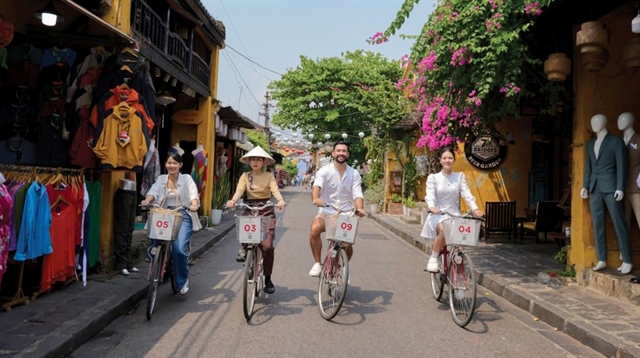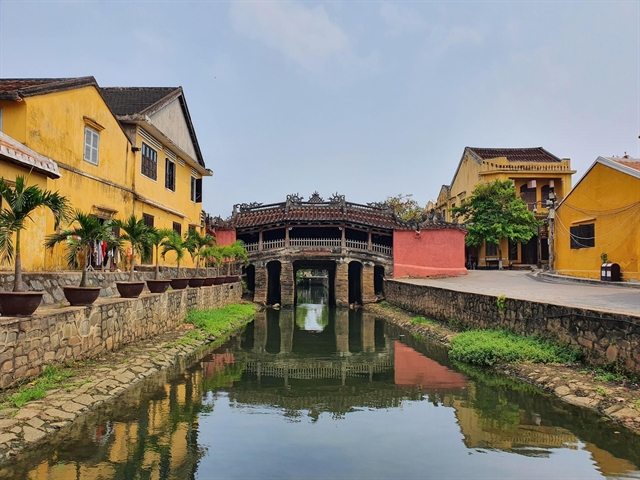 Life & Style
Life & Style


|
| Cầu (Bridge) Pagoda in Hội An City, Quảng Nam Province. — VNA/VNS Photo Đoàn Hữu Trung |
QUẢNG AN — Hội An City in the central province of Quảng Nam and the Japan International Cooperation Agency (JICA) on March 26 signed an agreement on supporting the restoration of the central old town’s iconic Cầu (Bridge) Pagoda.
Under the agreement, JICA will support Hội An by sending experts to the city to help restore the pagoda. The work may be adjusted depending on COVID-19 situation in Việt Nam and Hội An.
JICA will also help increase local capacity in preserving Hội An Ancient Town's areas by providing the city with technical support.
Addressing the signing ceremony, Vice Chairman of the provincial People’s Committee Trần Văn Tân highlighted the significance of Japanese support in the restoration of the site.
He proposed that the two sides promptly finalise necessary procedures to receive Japanese experts soon, so that restoration can start in mid-2022.
Cầu Pagoda is situated in Hội An Ancient Town, connecting Trần Phú and Nguyễn Thị Minh Khai roads.
The bridge was built by Japanese tradesmen, possibly in the 17th century, so is also called the Japanese bridge.
It was not until 1653 that a tile-roofed structure was erected, connecting the northern railings, protruding between the bridge, which is why locals often call the covered bridge Chùa Cầu (Pagoda Bridge). The pagoda has been renovated many times.
The current structure was formed during renovations in the 18th and 19th centuries. Visitors to Hội An Ancient Town are impressed by the pagoda’s unique architecture: a tiled roof structure on top, with a bridge below.
Although it is a pagoda, the pagoda is not for worshipping the Buddha (like other typical pagodas in Việt Nam), but a spirit that protects and brings happiness and fortune to the local people. — VNS




